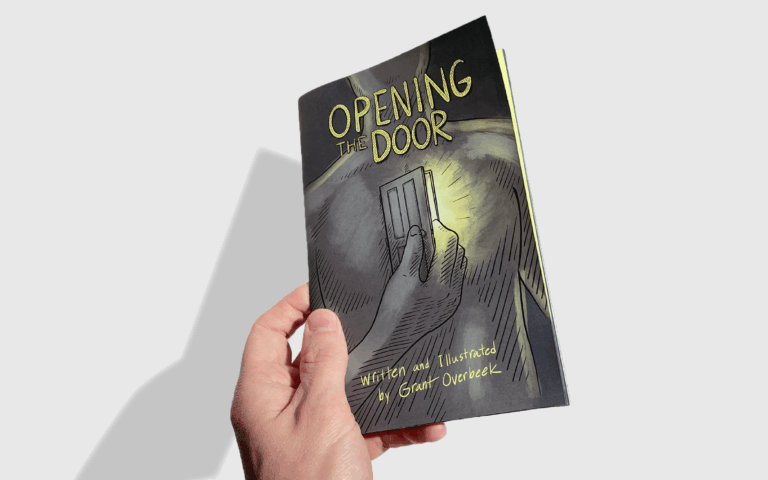When we talk about questions of morality in the Church, we use the words “right” and “wrong.” Don’t hear me incorrectly—there is absolute truth and when we are talking about aspirational ideas, there are “best” and “right” things. But unfortunately we live in a broken world. Nothing is untouched by the fall, including the Church. So even when we reduce conversations to what the Church offers versus what the World offers, we cannot simply talk about “right” and “wrong.” Instead we must compare imperfect offerings to find what is better. What the Church offers is never perfect, and what the World offers is never void of goodness. When stepping back and looking at these things as a whole, we must choose what is more sanctified, what better honors God, and what better reflects His intentions among less-than-perfect options.
The idea of looking for the better of two imperfect options is no more relevant than in a conversation about the morality of homosexual activity. We must ask ourselves: Does the average American church offer something truly better than the average gay community?
For the sake of this conversation, I will talk about the average American church and the average gay community in simplified ways. If you disagree with my assessments, feel free to leave your perspective in the comments section.
In many’s opinion, the average American church offers the right theology on the morality of homosexual activity: that it is a sin. But, the good seems to stop there. In most of these churches, sexual minorities will find silence on the topic of same-sex attraction that communicates shame to them, encouraging them to keep their secret to themselves. Often, these churches are petri dishes for homophobia and fear of close, same-sex friendships. These churches preach covertly—or even sometimes overtly—that singleness is worse than marriage, marriage is the answer to loneliness, and that everyone ought to be married. When faced with those who experience same-sex attraction, their solution is navigating the complexities of marriage to someone of the opposite sex or, increasingly, celibacy. Yet, these churches do a paltry job of valuing single people and fostering a rich community for single people. Many still believe that attraction is a choice, that continuing to experience same-sex attraction is a sign of willful disobedience, and that gays go to Hell—no questions asked. In churches like these, sexual minorities feel weird and alone—afraid of being known or enjoying any kind of physical or emotional intimacy in friendship—leading to isolation and an alarmingly high rate of suicide among religious LGBT+ youth.
Regardless of your personal beliefs on homosexual activity, the average gay community offers a lot of things to the sexual minority that have eternal goodness. You are accepted as you are. You have the freedom to make your own decisions without fear of being rejected because of them. You can have relationships with those you are attracted to. You don’t have to be ashamed. You don’t have to hide. You won’t be judged or weird or alone. You can find identity and community with other people like you and find purpose in fighting for people like you. These messages sound a lot like things Jesus has said, and these kinds of actions look a lot like things Jesus has done.
So, when YOU sum each of those, which one seems to offer more goodness? Neither is perfect, but which one seems to be closer to what God would intend?
People don’t really care what we believe or why we believe those things. They care whether we are offering something better. Maybe it’s the Christian hedonist in me, but if what we say is right is truly right, then it should bear better fruit. We are all created in the image of God to desire and seek what is good, so if we can offer what is true and good, people will want it. This isn’t about who is right—it’s about whether our friends and family who are sexual minorities are more likely to know Christ or less likely to know Christ because of how well (or poorly) we reflect His love. If the Church does not offer something better to sexual minorities—regardless of whose theology is right—we will have to answer to God for those who could not see Christ because we were standing in the way.
Let’s become the Church where sexual minorities can belong. Let’s offer something better: acceptance, unconditional love, and community in a shame-free place where people can talk about their experiences. Let’s foster rich community for single and married persons where intimate, spiritual friendships are treasured. Let’s teach our congregations, from children up, an accurate, robust, and compassionate theology of sexuality. Join Equip in doing this by starting conversation among your friends or inviting Equip to your church.







Gregory McElyea
I love that you mentioned Piper’s Christian hedonism! Is that why you asked me if I was a Wesleyan? Piper being the good Reformed fellow he is. Haha! We actually talked briefly about Piper and Christian hedonism during our residency at Asbury! Love it and think it’s a great way to frame the conversation.
Pieter Valk
Glad to hear this was helpful!